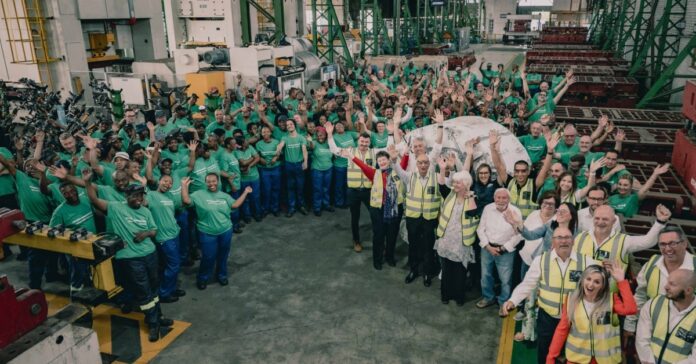THE local vehicle manufacturing sector understands the need to decarbonise their operations according to a study conducted by the naamsa, the body that represents vehicle manufacturers.
The carbon-readiness study found that 60% of its respondents understood the need to decarbonise, especially given the stipulations of the European Union’s Carbon Border Adjustment Mechanism (CBAM).
Automotive manufacturers in South Africa: Setting the Decarbonisation Agenda
CAAM is essentially a carbon tax which is designed to put a carbon price on imports of certain carbon-intensive goods, aiming to prevent carbon leakage and encourage cleaner industrial production outside the EU.
The EU is an important market for the local vehicle manufacturing industry, which recorded sales worth R147,1-billion in 2023 into the trade block.
The importance of decarbonisation to the EU could be seen in it banning the sale of internal combustion engines and switching to zero-emission vehicles by 2035.
Automotive manufacturers’ decarbonisation frameworks and best practices
Though the sector on the whole understood the importance of decarbonisation, there was uncertainty on how to incorporate this into their businesses, said National Association of Automotive Component and Allied Manufacturers (Naacam) policy and regulatory affairs head Beth Dealtry.
Speaking at a Nedbank Commercial Banking’s Manufacturing Roundtable discussion on the matter, Dealtry said no one was particularly sure about what action to take, which could be seen in respondents saying they “don’t know what to do.”
Dealtry said a lot of the confusion would be dealt with if the industry put in place a common framework for decarbonisation. “A decarbonisation framework would answer a lot of questions.”
South African vehicle manufacturers: Incentives and fiscal constraints
She said this was the next step, as a common methodology and methodology needed to be developed.
Dealtry said the industry should also look to what is being done overseas when it comes to decarbonisation. “We should look at what is global best practice. We could for example look at what a company in a subsector is doing in South Korea and look to do something similar here.”
When it came to providing a way for the industry to adapt to decarbonisation, she felt there were mechanisms like the various incentive schemes which could assist the industry, but this should be measured against the fiscal constraints of the country.
For decarbonisation to become a priority for the sector, Dealtry said it should be taken seriously by key decision makers in the industry, meaning it should be prioritised in the boardroom.
Automotive manufacturers: Consumer demand as a decarbonisation driver
She also pointed out that consumer pressure could also be a key driver for decarbonisation but this has not happened yet.
“The sector moves when customers require it, but a lot of customers are not requiring it or are requiring it in very specific areas.”
Though the local vehicle manufacturing industry was still adapting to the requirements of decarbonisation, there are some companies in the sector that saw it as an opportunity.
Malben Engineering, a supplier of stampings and welding components, won a Steel and Engineering Industries Federation of Southern Africa’s (Seifsa’s) environmental award for running a ‘green’, low-carbon steel trial in 2024.
Speaking at the handover of the first-ever green steel coil at the company’s Nigel manufacturing facility, operational Director Luca Smargiasso pointed out that the increased use of green steel – and the decarbonisation of the local steel supply chain – will be game-changers for the steel and automotive sectors in the years to come.
Malben Engineering, ran a ‘green’, low-carbon steel trial in 2024.
